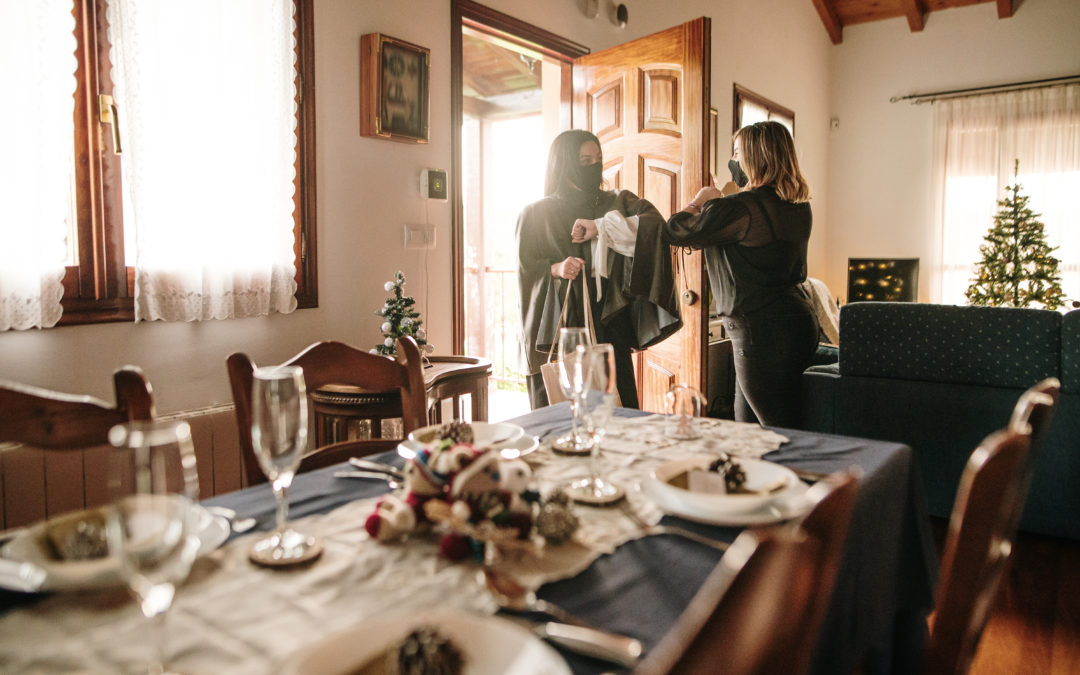The holidays are traditionally a time to gather with family and friends both near and far, but the idea of welcoming guests during the COVID-19 pandemic has many community association boards and managers concerned about holiday visitors.
While the Centers for Disease Control and Prevention offers protocols for enhancing cleanliness and disinfection in communities to prevent the spread of COVID-19, associations can collaborate with state and local health officials to determine how to implement these recommendations. Community association leaders also should determine whether to make adjustments to meet the unique needs and circumstances of their community.
 Ursula K. Burgess, a shareholder at Rees Broome in Tysons Corner, Va., fellow in CAI’s College of Community Association Lawyers (CCAL), and CAI’s 2020 president, answered a few questions regarding holiday visitors.
Ursula K. Burgess, a shareholder at Rees Broome in Tysons Corner, Va., fellow in CAI’s College of Community Association Lawyers (CCAL), and CAI’s 2020 president, answered a few questions regarding holiday visitors.
Q: Many people like to gather with family and friends during the holidays. How are community associations navigating the topic of guests?
A: At the beginning of the pandemic, many community associations prohibited nonessential guests to reduce exposure to COVID-19. Unfortunately, with the recent increases in COVID-19 cases in many states, it is not advisable to lessen these restrictions. Accordingly, community associations should continue to keep restrictions in place, including the continued closure of common spaces. Making exceptions for the holidays could result in a spike in COVID-19 cases within the community, and that is not a risk that associations should take. Board members and community managers should take the action best suited for the overall health and safety of their community.
Q: Can a community association legally prohibit guests from entering?
A: This is a great question, and the answer is, it depends. Community associations are controlled by state statutes and their unique set of governing documents that collectively determine whether an association has the power to prohibit guests. Practically speaking, if an association is legally able to prohibit guests, the association will have to be prepared to take enforcement action if residents violate this prohibition, which may be extremely difficult, expensive, and time-consuming. Accordingly, I recommend that associations consult with legal counsel on their authority to ban guests and review its practicalities and challenges.
Q: Some community association residents are voicing growing concerns about people coming from unknown places during the COVID-19 pandemic and staying in short-term rentals. Some boards are taking direction from states and localities to temporarily ban them. What recommendations are you making to your clients?
Fortunately, most of my clients already have restrictions on short-term rentals in the governing documents, so we have not had to enact new rules on them in response to COVID-19. Being in the Washington, D.C., metropolitan area, short-term rentals are a big issue for us, especially during big events like the upcoming presidential inauguration. I have continued to advise my clients to be diligent in the enforcement of short-term rental restrictions.
Community association board members should consult with their professional partners, including community manager and attorney, on how best to handle preparing for and reacting to COVID-19. Board members may want to review CAI’s downloadable reopening guide.


